Sometimes we need to change doctors. Sometimes a medical condition needs to go to an expert. And sometimes, a medical emergency prevents us from giving our complete medical history to the doctors and nurses treating us. In any case, the quality of health care that we receive is only as good as the accuracy of our medical records.
And while it may be impossible to calculate exactly how many errors are hidden in our medical histories, the Office of the National Coordinator for Health Information Technology estimates that nearly 1 in 10 people who access their medical records online end up requesting that they be corrected. So how do you find out if your medical records are accurate? And how do you correct them if they’re not?
Accessing Records
“I tell people, ‘Collect all your medical records, no matter what’ so you can ask all kinds of questions and be on the alert for errors,” Susan Sheridan, director of patient engagement with the Society to Improve Diagnosis in Medicine told CNN. That is great advice, but how do you actually get your records?
The Health Insurance Portability and Accountability Act (HIPAA) establishes data privacy and security guidelines for patients’ medical information. This law also guarantees your right to review your medical record and request corrections. Under HIPAA, hospitals, medical clinics, physician practices, pharmacies, and health insurers are required to make your medical records available within 30 days, at a reasonable cost, and in the format that you request, if possible.
If you are having trouble acquiring your medical records, or those of a family member, you can review the recent guidelines issued by the Office for Civil Rights of the U.S. Department of Health and Human Services.
Fixing Errors
Your doctor or hospital should also be able to provide you with a form to correct any errors in your medical records. “Individuals should be provided with a timely means to dispute the accuracy or integrity of their individually identifiable health information,” according to the Office of Civil Rights, “and to have erroneous information corrected or to have a dispute documented if their requests are denied.”
Even seemingly innocuous errors, like outdated contact information for family or designated representatives, inaccurate dates of treatment, or minor errors in dosages and medications can have catastrophic health effects if not corrected. Make sure you check your medical records and fix any errors. And you may want to talk to a local attorney for help if you’re having trouble.
Related Resources:
- Browse Health Care Lawyers Near You (FindLaw’s Lawyer Directory)
- Medical Records Don’t Always Match What Patients Say (Reuters)
- Have Your Medical Records Been Hacked? Probably (FindLaw’s Injured)
- Who Has Access to Your Medical Records After You Die? (FindLaw’s Injured)




